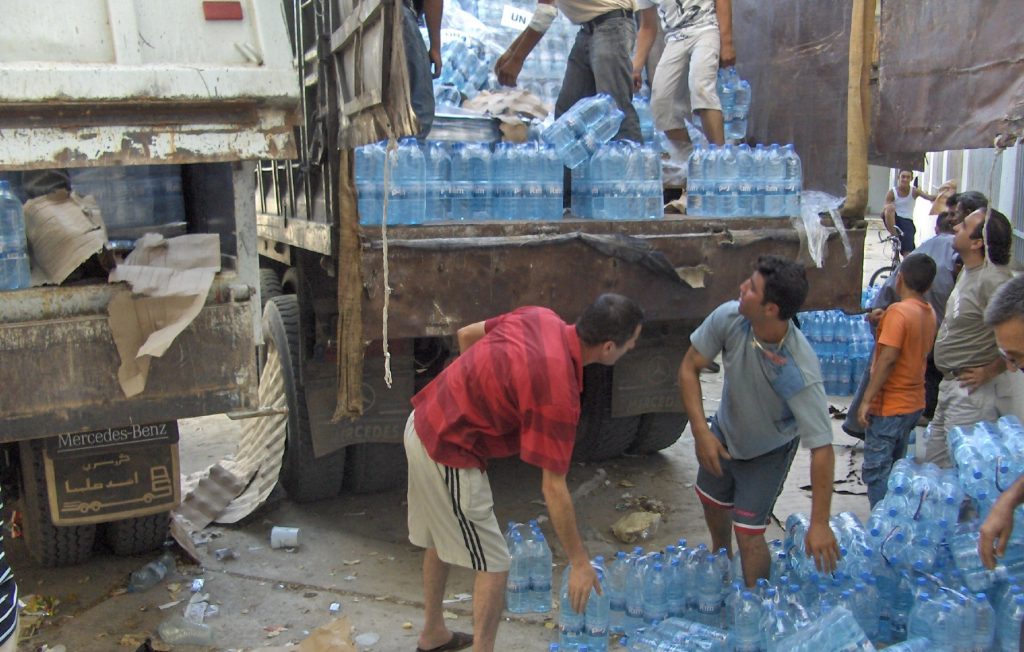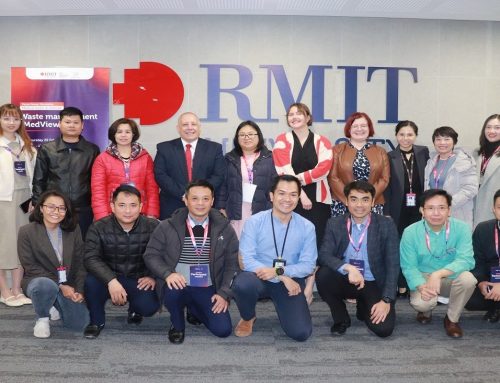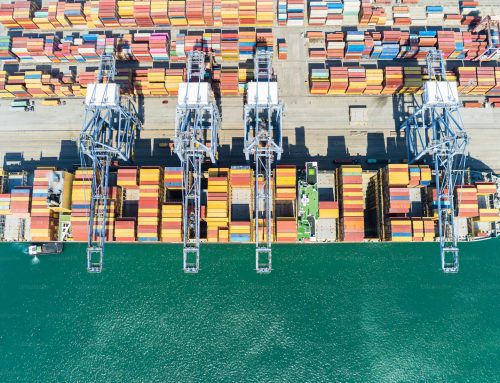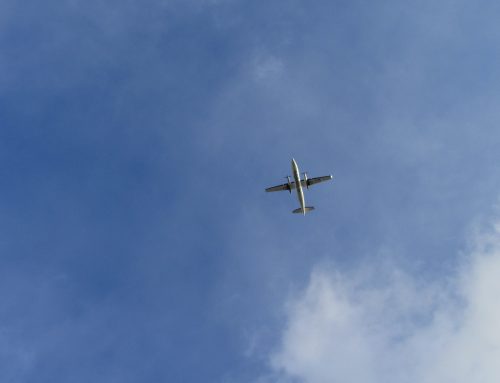By Dr. Virva Tuomala
Postdoctoral Researcher at the HUMLOG Institute

Humanitarian logistics deals in emergencies such as conflicts, natural disasters, and pandemics. In very simple terms, the main idea is to transport goods to a disaster-stricken location, where the local infrastructure has suffered damages and losses. In general, the main gist of logistics and supply chain management is the transport of goods from point a to point b. In a commercial setting the goal is to do this in a way that maximises profits. In a humanitarian context the point is to save lives.
The noble objective of humanitarian action does not exempt its supply chain from the externalities that occur when dealing with goods. Transporting a field hospital by truck causes the same amount of emissions as transporting anything else, the atmosphere does not care what the cargo is. Plastic bottles distributed to beneficiaries after a typhoon are just as harmful to sea life as bottles bought when going to the gym, the ocean does not care that bottle was lifesaving.
Humanitarian organizations are starting to recognize the negative impacts their supply chains have on the environment. The do-no-harm principle, which refers to understanding the impacts of the aid on the existing social and physical infrastructure in the area where the aid is provided, has in theory always also included the natural environment, but the urgency of lifesaving action has taken precedent over environmentalism.
The WREC project, short for “waste management and measuring, reverse logistics, environmentally sustainable procurement and transport, and circular economy”, tackles the environmental impact of humanitarian logistics. The project is coordinated by the Logcluster and has several organizations as partners. Hanken’s role in the project was to conduct a qualitative baseline study of environmental sustainability in humanitarian logistics. This included an initial literature review, which was presented at the NOFOMA conference in Iceland, where it won the award for best paper. It consisted of both academic as well as grey literature from practitioner publications. Keeping the review concrete and relevant was paramount, as the goal is to influence humanitarian practice, not just obtain academic accolades. It is however encouraging that these two do not seem to be mutually exclusive.
The final report (available here) consists of an empirical study conducted with 31 interviewees from 17 different organizations. The emphasis of the overall qualitative study was on waste management and reverse logistics, both of which have been slightly neglected themes within humanitarian logistics. Waste generation in disaster aid is of course impossible to completely avoid, but a huge difference can be made through proper management of the entire supply chain. The role of procurement was particularly highlighted throughout the interviews, as factors like choice of materials in relief items can make a huge difference in terms of durability, recycling, and managing good at the end of their life cycle. Local procurement, which has been hailed as a sustainability measure both in terms of reducing emissions from transport as well as invigorating local economies. However, buying goods onsite restricts organizations to what is available, and those products might not comply with environmental specifications.
The old adage of reduce-reuse-recycle holds true in environmental sustainability in humanitarian context as well. Having relief items in recyclable materials poses some issues however, as these items may spend fairly long periods of time in storage, and biodegradable materials for example may start to decompose. In contexts such as refugee camps, relief items can be used for multiple purposes and years, so having items in durable materials is important for this reason too. There are also many grassroots recycling initiatives among beneficiaries, such as making bags out of tarpaulins or flip flops from old car tyres. While these initiatives are great, their scope is limited and they cannot really be considered a solution to the wider recycling and waste management issue. This change must come from the organizations and their supply chains. The interviewees were well aware of this responsibility, and highlighted factors like collaboration (or lack thereof), education, and local action.
Collaboration can refer to several different factors in this case. For example, collaboration among different sectors within organizations is integral in terms of waste management. The responsibility cannot be solely on procurement, as the context where the aid is provided in is relevant, and different types of waste require different means of management. Medical waste for example needs to be disposed of in very particular ways, which require equipment such as incinerators. In such circumstances inter-organizational and private sector collaboration is key. A particularly interesting example of private sector collaboration that came up in the interviews was a fruitful partnership with a Kenyan waste management company and a humanitarian organization focusing on plastic recycling. This was however the only example, so there is room for improvement there. Providing education in waste management issues is also something to focus on, both within the organizations internally as well as in the contexts where aid is provided.
Since climate related disasters have become the number one reason for relief aid, it is especially important for those providing the aid to not exacerbate the issue. Thankfully, our report and the interviews conducted for it indicate that this is being considered and taken seriously in the humanitarian context as well.
To read further information about this topic, check out this article published by Hanken about the study as well. https://www.hanken.fi/en/news/environmental-sustainability-still-neglected-too-often-humanitarian-aid

Dr. Virva Tuomala is a postdoctoral researcher at the HUMLOG Institute, and focuses heavily on urban food security, food supply chains, and sustainability in reverse logistics.
Contact: virva.tuomala@hanken.fi




